- Home
- slideshows
- miscellaneous
- Northwest Austin has historically been the Texas city's 'Silicon Valley,' and tech's biggest players are still pouring in. Here's what it's like in Austin's 'second downtown.'
Northwest Austin has historically been the Texas city's 'Silicon Valley,' and tech's biggest players are still pouring in. Here's what it's like in Austin's 'second downtown.'
Austin continues to be an attractive destination for tech employers as the metro area's lower cost of living, large talent pool, and high quality of life draw workers into the region.

Tech has ballooned noticeably in the last eight years especially, but the industry has a long history in the capital city.
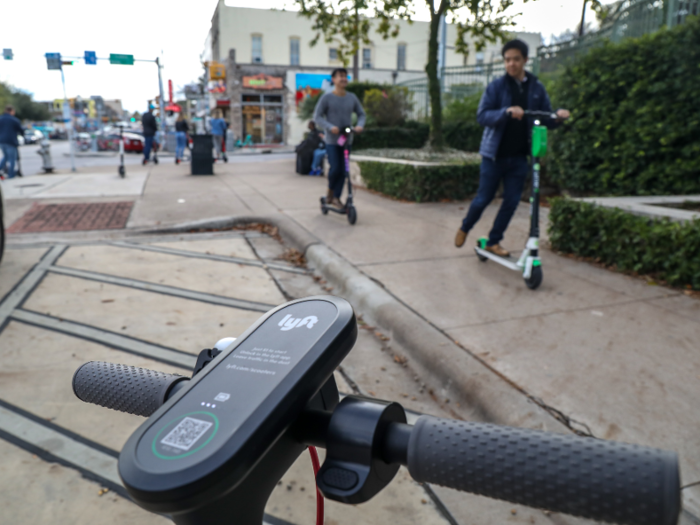
Source: Austin-American Statesman
And it has its northwest sector to thank for that — that's where the city's successful enterprise software and hardware players, or "old Austin tech," set up shop decades ago, Paul O'Brien, CEO of MediaTech Ventures, told Business Insider.
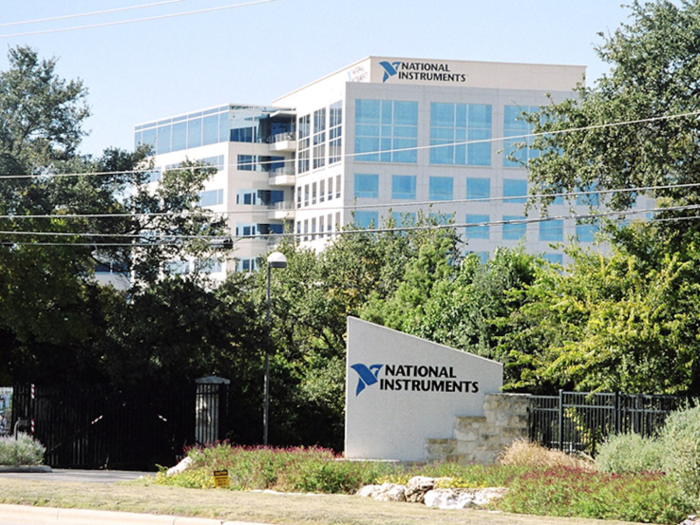
"The Silicon Valley parallel would be that's the old HP garage," according to O'Brien, who lived and worked in the Bay Area at Yahoo and Hewlett Packard before moving to Austin in 2010.
A handful of companies, like IBM and Texas Instruments, touched down in Austin in the late 1960s and 1970s and served as building blocks on which Austin's current tech community would be built in the years to come.
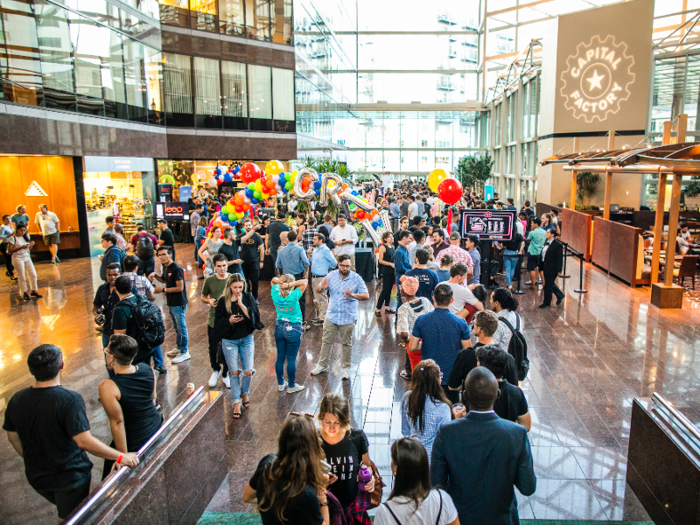
Source: Austin-American Statesman
Both IBM and Texas Instruments are just two of the companies that chose Northwest Austin for their office location, setting up that region specifically for substantial economic development.
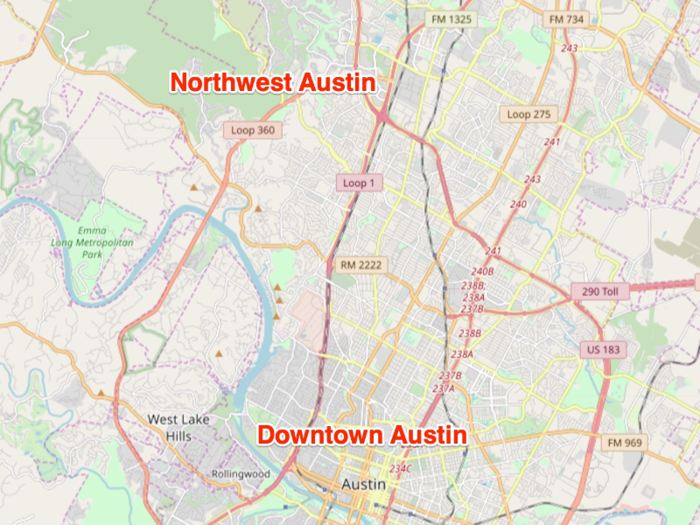
Source: Austin Business Journal
General Motors, 3M, and Samsung later chose Northwest Austin as well and set up shop along Parmer Lane, which serves as a prominent business corridor through North Austin.

Source: Community Impact
Parmer Lane is where Apple first planted its roots in the 1990s, and the Silicon Valley giant's new $1 billion campus will be a mile away from its existing location on Parmer Lane, potentially adding 15,000 more workers to its Austin workforce.
Source: Community Impact and Business Insider
Cisco, National Instruments, Bazaarvoice, Oracle, and Microsoft have since filed in as well, further solidifying the area's tech reputation akin to that of Silicon Valley's.
Source: SEO'Brien
In a 2016 blog post, O'Brien wrote that "driving around here feels like driving around Mountain View and San Mateo, with Apple, Samsung, Cisco, Google, IBM, Microsoft campuses and more making it clear that you're in tech country."
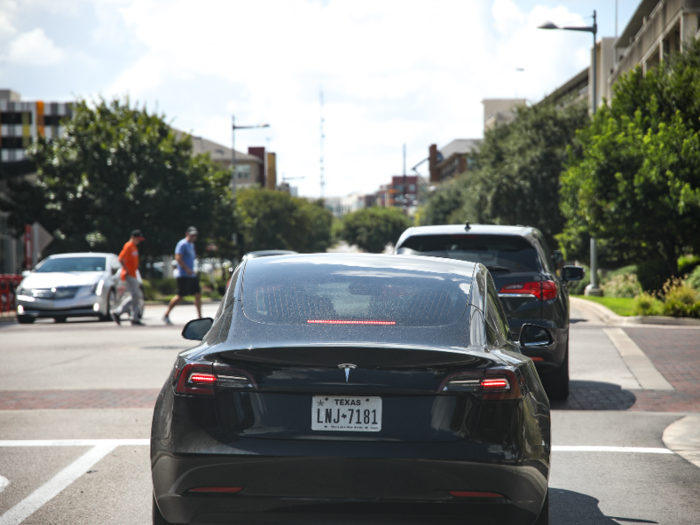
Source: SEO'Brien
Besides Parmer Lane, another one of the main thoroughfares through this part of town is Highway 183, known as Research Boulevard, which is where Texas Instruments built its campus in 1969.
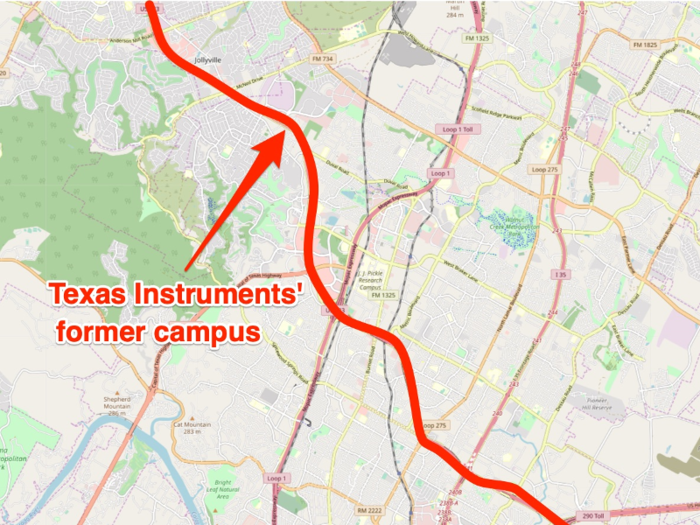
Source: Austin Business Journal
There's also Texas Loop 1, or MoPac Expressway, and The Capital of Texas Highway, or Loop 360.
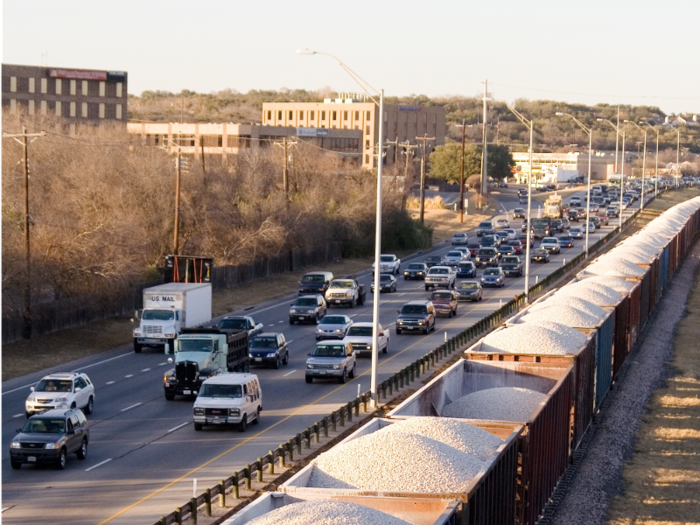
Certain coffee shops along 360 are mainstays for the city's venture capitalists and tech workers, who opt for cozy spots like 360 Uno and Monkey Nest to talk shop, O'Brien wrote on his blog, SEO'Brien.

Source: SEO'Brien
"You can kind of think of 360 as Sand Hill Road," O'Brien told Business Insider.
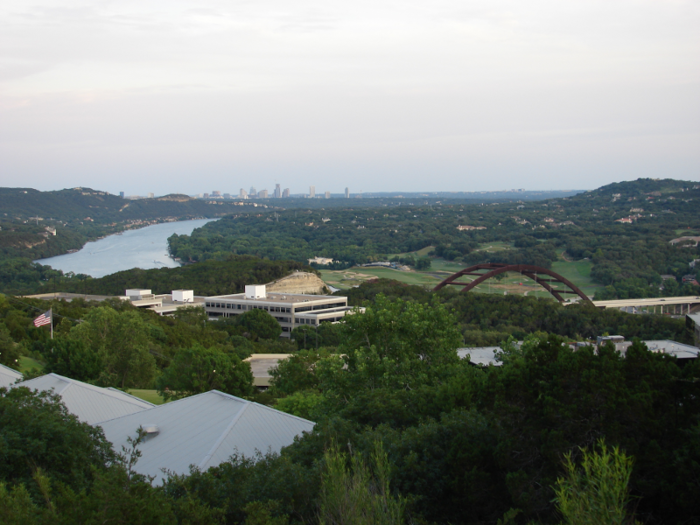
All three roads — US 183, Loop 1, and Loop 360 — converge roughly in the same part of Northwest Austin.
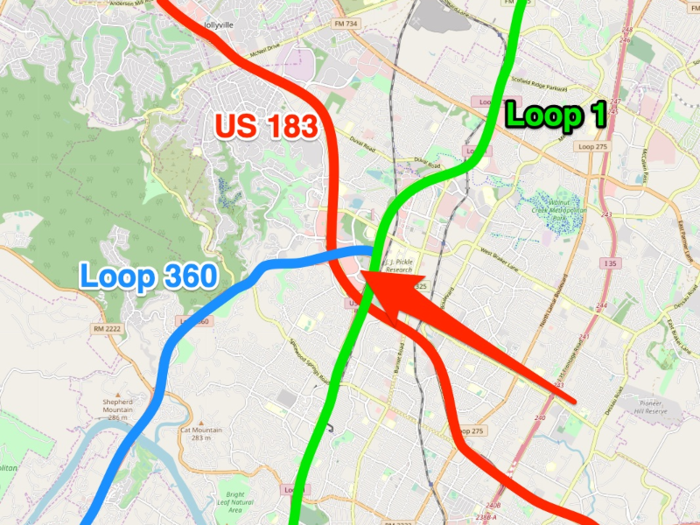
The Domain, about ten miles north of downtown Austin, is right next to that epicenter.
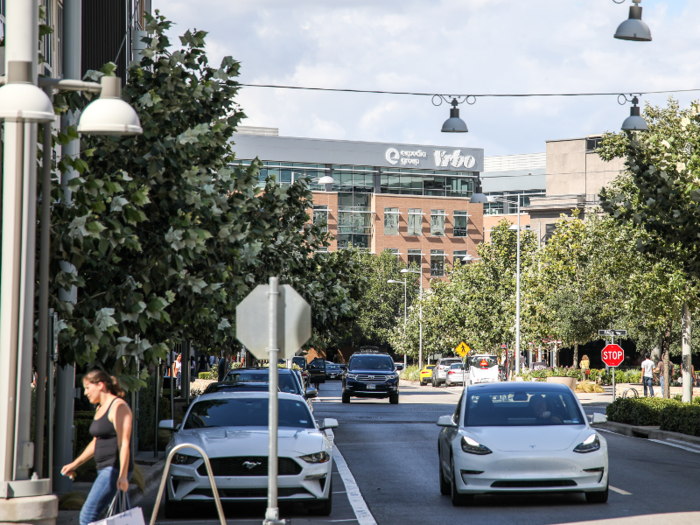
The Domain is one of two major shopping complexes in Northwest Austin, the other being the Arboretum not far away.
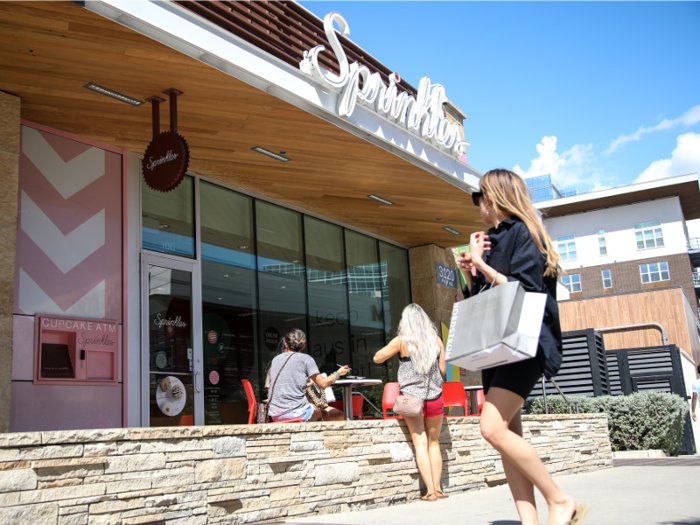
What is now the Domain was where IBM, a veteran of "old Austin tech" as O'Brien put it, initially planted its roots in 1967 with a manufacturing plant.
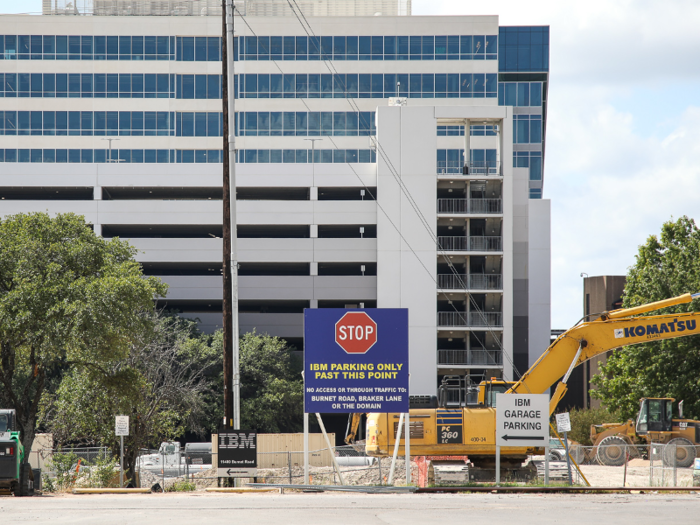
Source: Austin-American Statesman
The shopping center eventually grew and surrounded the plant, but the Domain project as it's known today almost never came to fruition, thanks to the dot-com bust in the early 2000s.
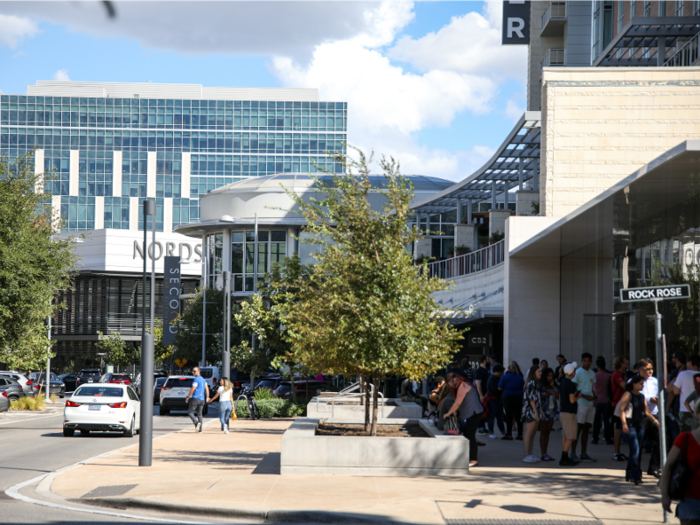
Source: Austin-American Statesman
The 300 acres were originally intended to be an office campus housing some of the biggest tech companies flocking to Austin during the tech boom of the late 1990s, as reported by the Statesman.
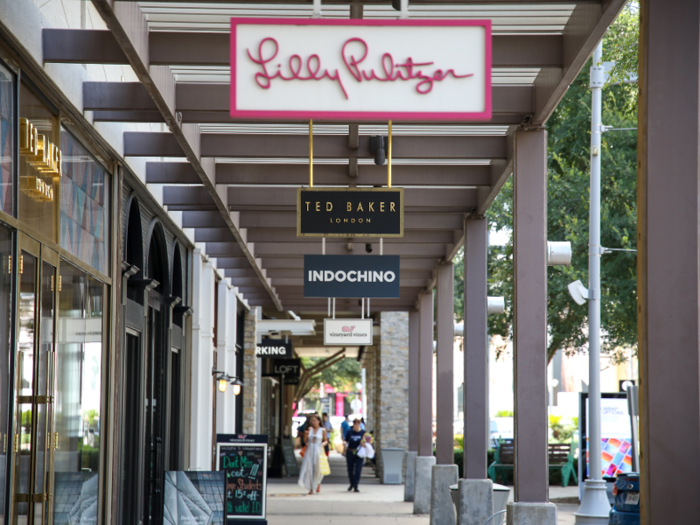
Source: Austin-American Statesman
The real-estate group overseeing the project at the time had to reimagine the land's vision and settled on turning it into an upscale retail center. It opened in 2007 with a Neiman Marcus as one of its anchor stores.
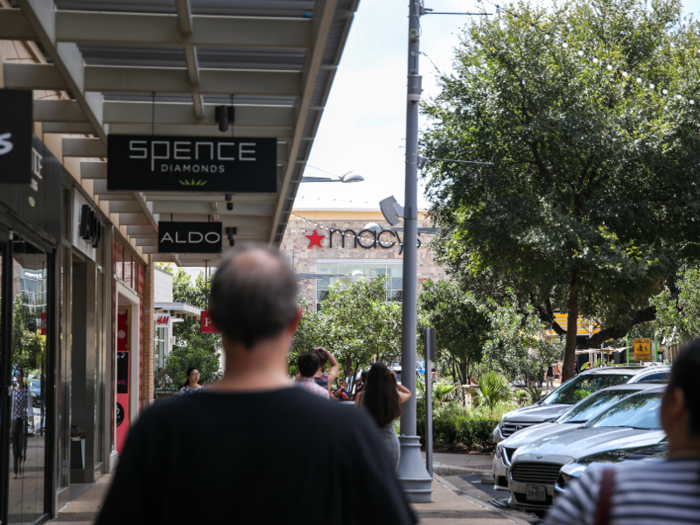
Source: Austin-American Statesman
The Domain is still a hot shopping destination, with luxury brands like Louis Vuitton mingling with more affordable fast-fashion brands like Zara and Forever21.

Source: Austin-American Statesman
But in the past five years or so, tech companies like VRBO, Facebook, Amazon, Indeed, and Adobe have moved in, Austin economist Angelos Angelou told Business Insider.
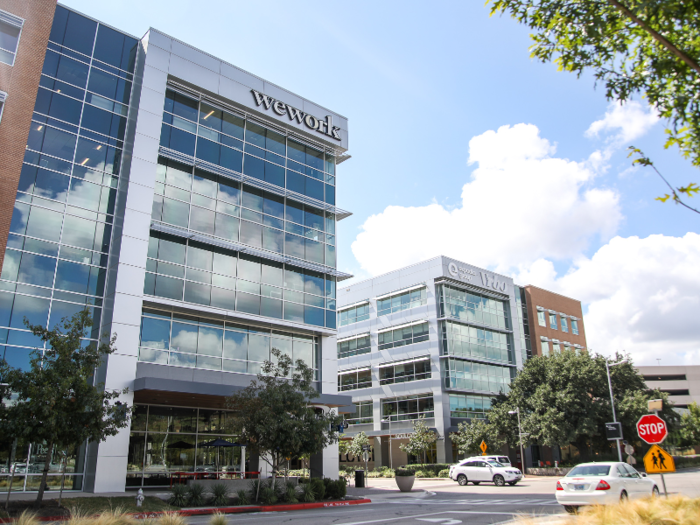
And so the Domain has become what the complex was meant to be all along.
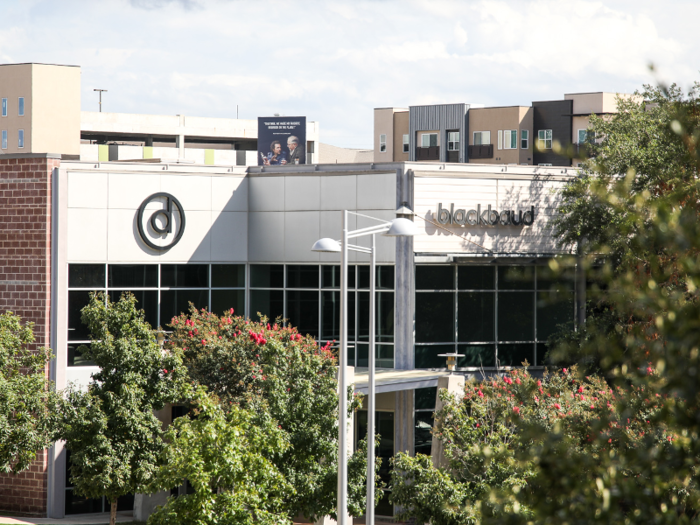
Source: Austin-American Statesman
High-density housing has gone up in response, and restaurants, apartments, shopping, entertainment, and office buildings provide tech professionals with all they need for a work-life balance, said Angelou.
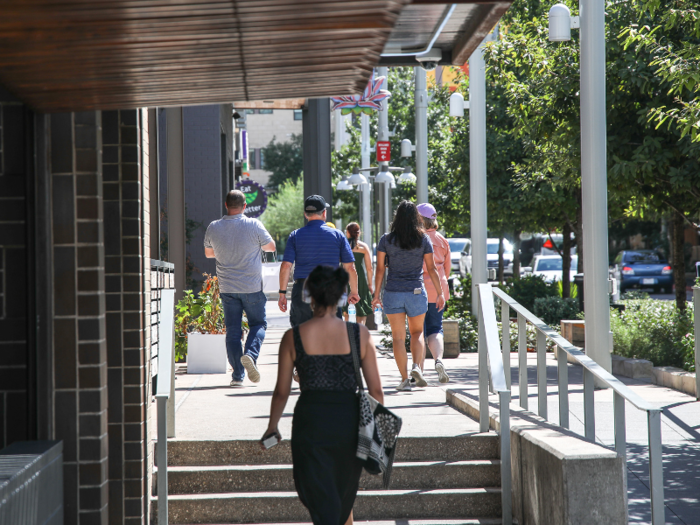
"It's attractive to a new technology employee locating in that part of town," Angelou said.
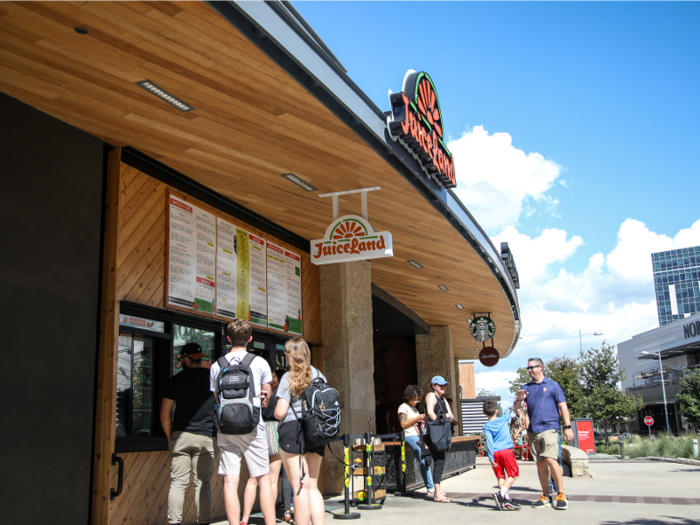
Expedia's VRBO, the Austin-based vacation-rental site once called Homeaway, was one of the first to move into the area in 2013 and kicked off a ripple effect that saw more and more tech offices gravitate to the Domain.
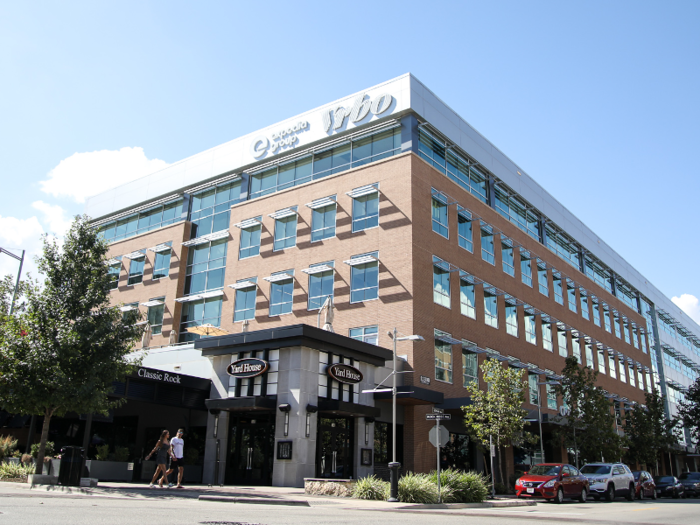
Source: Austin-American Statesman
Its global headquarters will soon be housed in a 16-story high-rise at the north end of the Domain, known as Domain Northside, and will employ up to 2,000 workers.
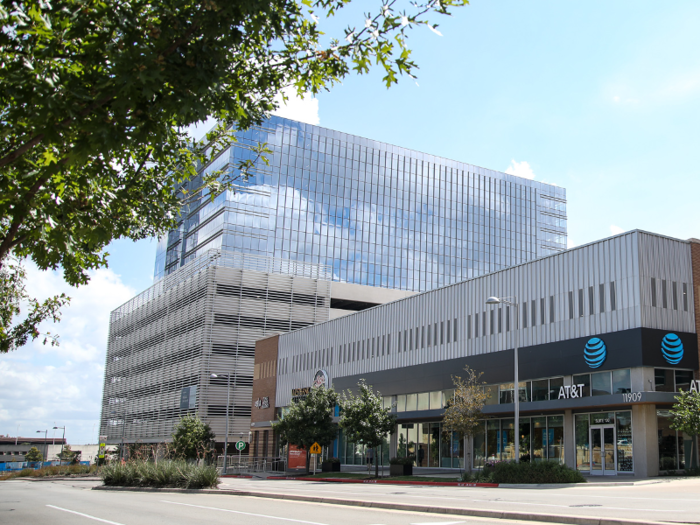
Source: Austin-American Statesman and Built In Austin
VRBO's new tower is just one building being constructed currently. It'll be neighbors with a new high-rise leased mostly by West Coast e-commerce behemoth Amazon.
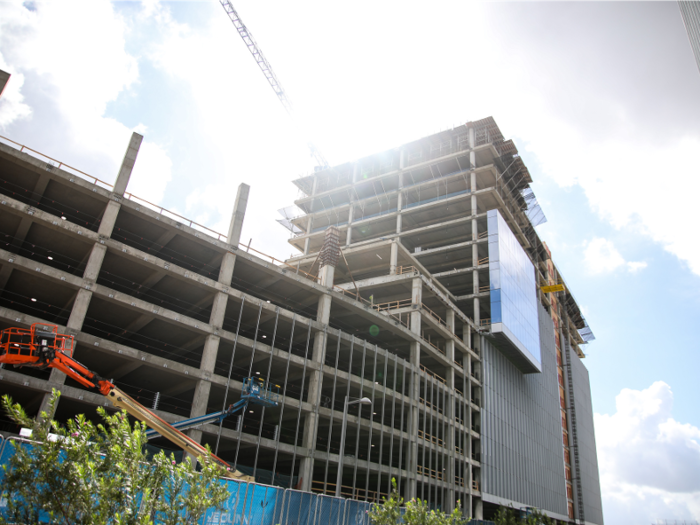
Source: KXAN
The jobs created by Amazon's new office space will push its total Austin metro area workforce to 7,400, beefing up its count to rival that of Apple's, which sits as Austin's No. 2 tech employer after hometown tech giant Dell.
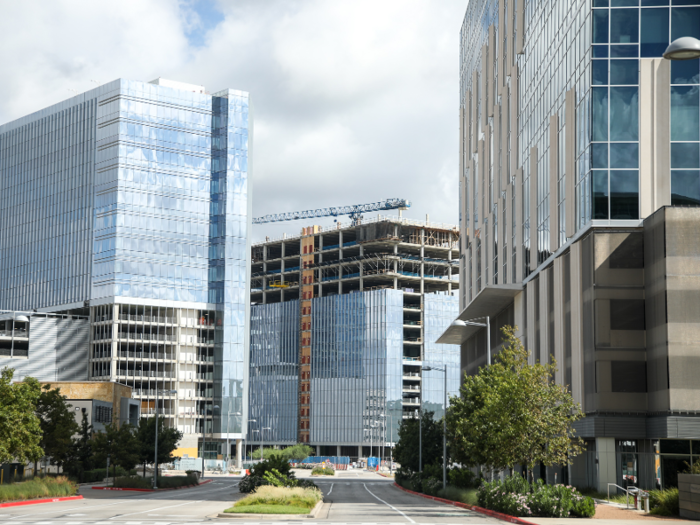
Source: American Inno
Amazon and VRBO will move into towers that form a triad with another 17-story high-rise currently under construction, leased in its entirety by Facebook.
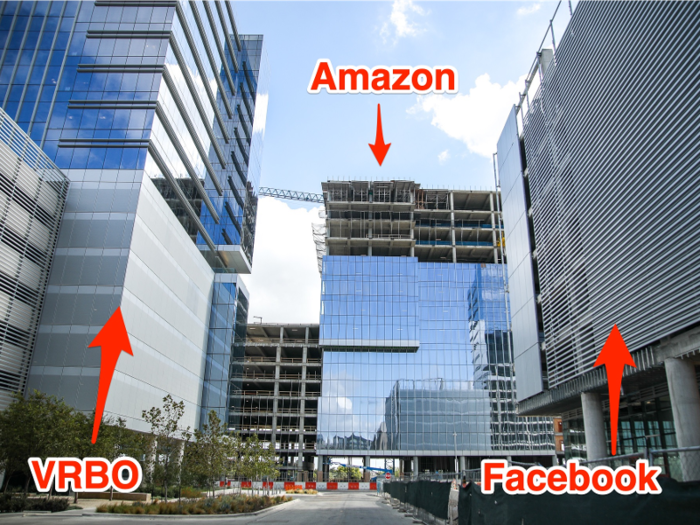
Source: Austin-American Statesman
Facebook and Amazon both already lease office space at the Domain at another building not far from where the new towers will open.
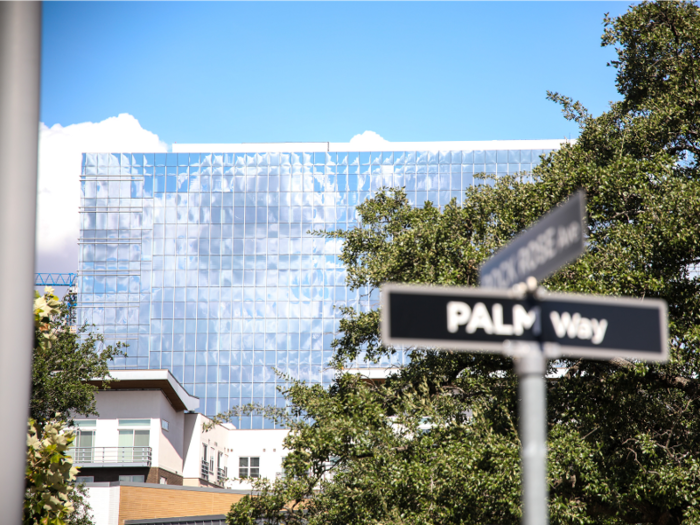
Source: Built In Austin
The Domain isn't the only part of Austin where employers are competing for the city's tech talent, but Angelou said the Domain does have an advantage thanks to its amenities.

After hours, workers at the Domain only need to walk out of their offices to have what they need at their fingertips.
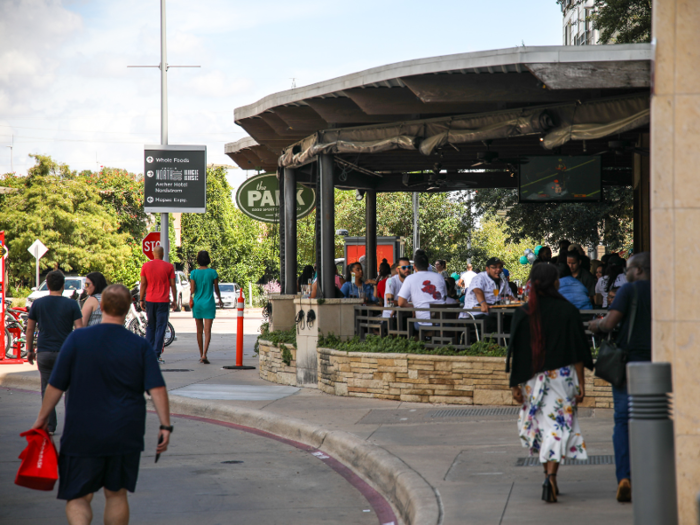
Near the new towers where VRBO, Facebook, and Amazon will move in is a Whole Foods. The pricey, health-conscious chain, acquired by Amazon in 2017, is the only grocery store in the Domain. Though an H-E-B — a beloved and more affordable Texan store — isn't too far away by car.
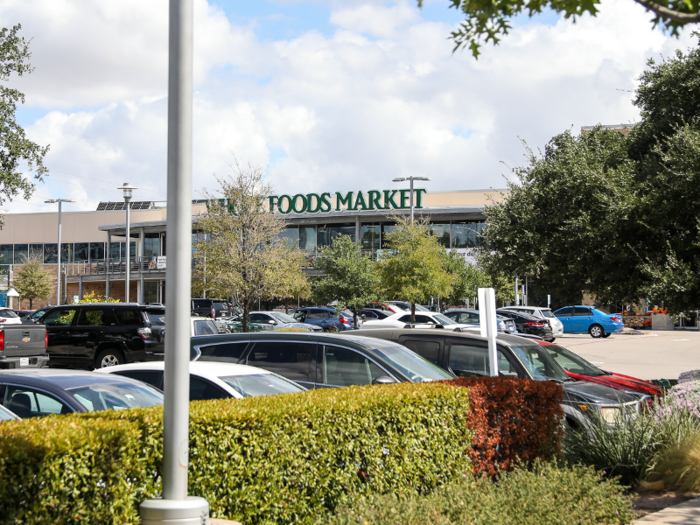
Source: Business Insider
If you're wanting to eat out, a slew of restaurants, from the health-conscious Flower Child to Austin favorite Lavaca Street Bar, are sprinkled up and down the Domain corridor.
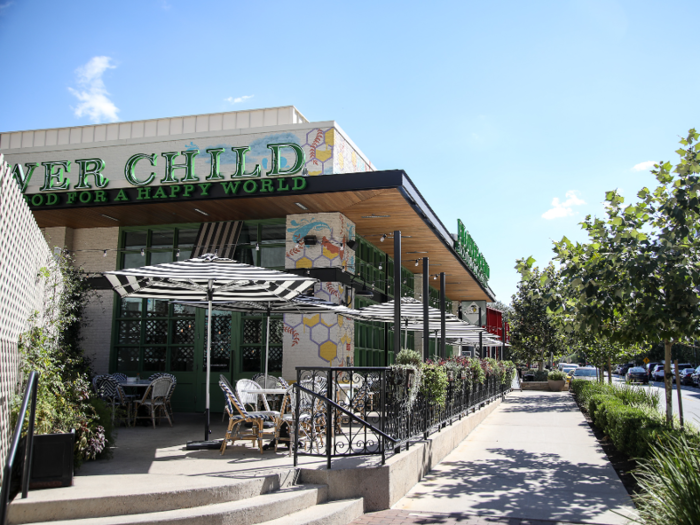
Shops like Away, Warby Parker, Marine Layer, and Peloton would make a Bay Area transplant feel right at home.
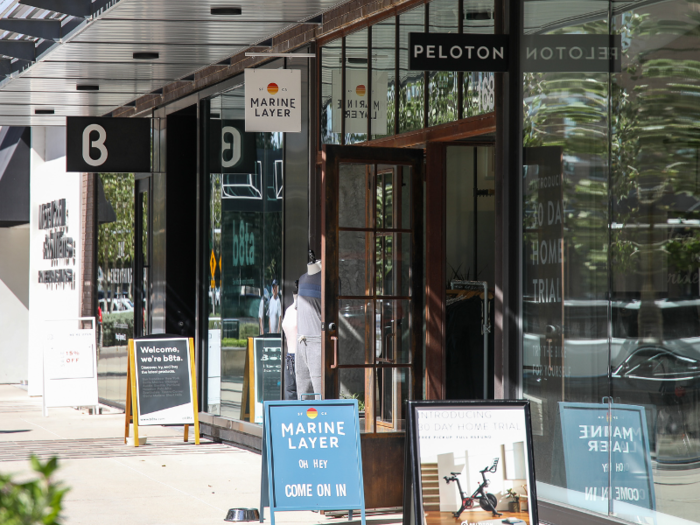
And big department stores like Macy's and Nordstrom anchor the community.
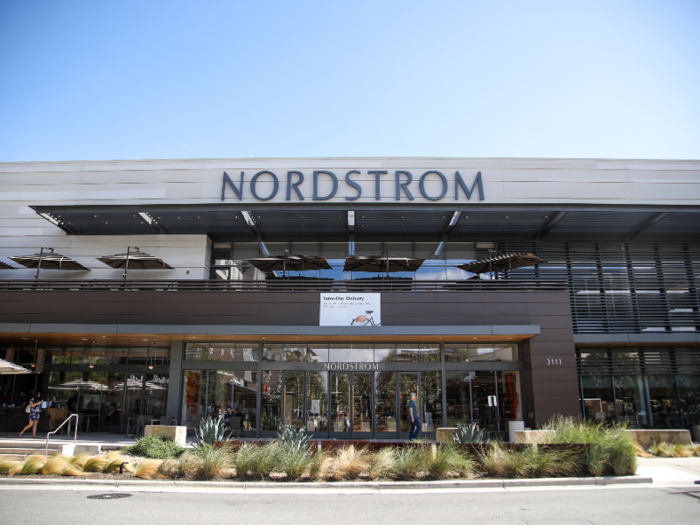
Housing at the Domain can be pricey — one-bedroom apartments at the Residences at the Domain, for example, start at $1,366 a month, a bit higher than Austin's average one-bedroom rent of $1,190.
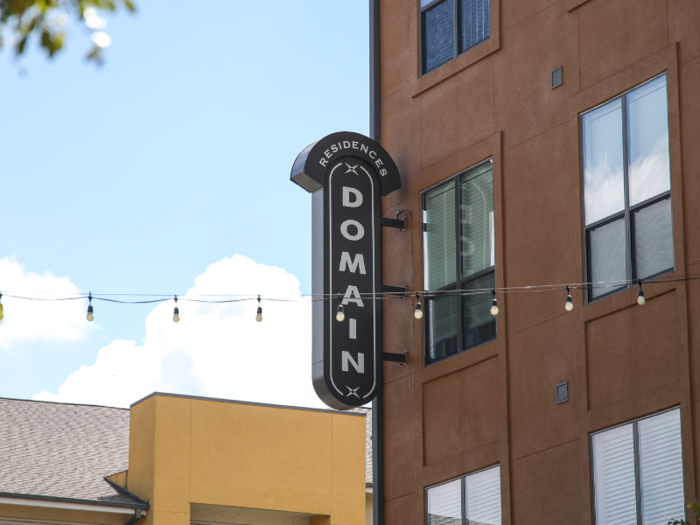
Source: Curbed Austin and Residences at the Domain
And a nightlife district, Rock Rose, keeps popping late into the evening with bars and clubs.
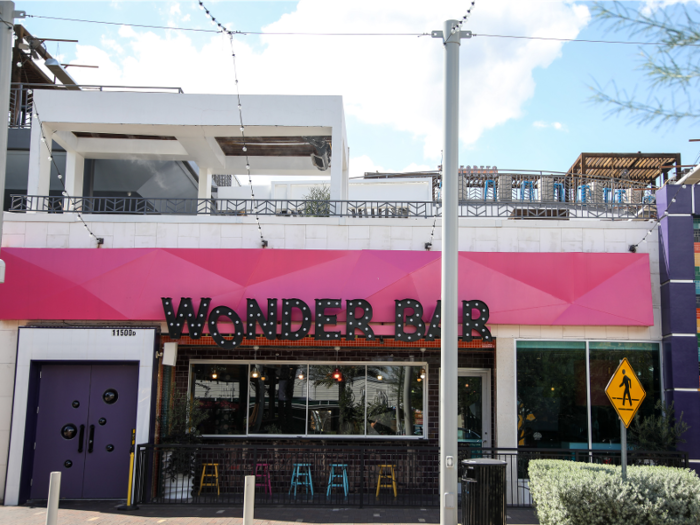
Expansion at and around the Domain isn't slowing down either — an office campus that includes IBM offices sits next to the Domain and is undergoing a 6 million-square-foot development. And a proposal for a Major League Soccer stadium is in the works as well.
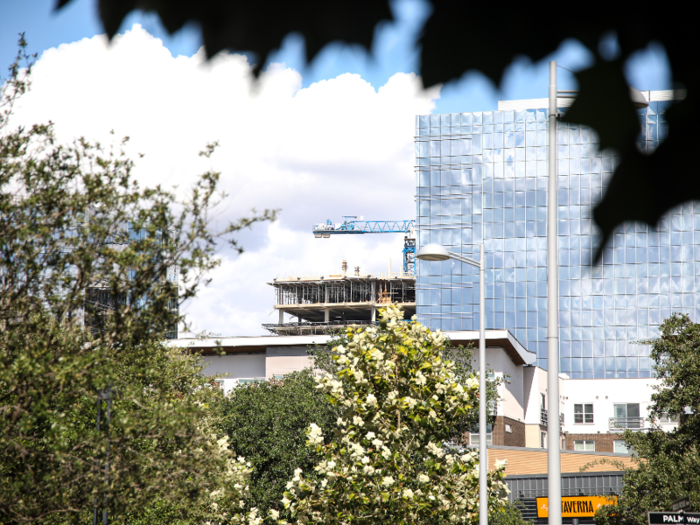
Source: Community Impact
The area has seen so much growth that the Domain has earned the nickname the "second downtown."
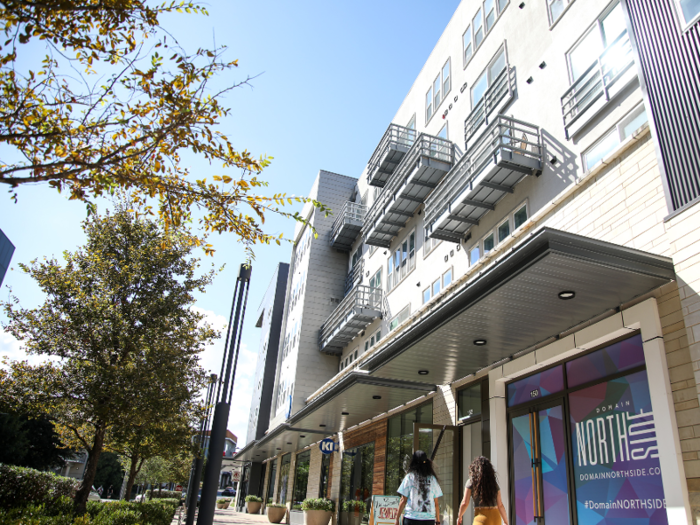
Source: Community Impact and Austin Culture Map and Austin Business Journal
Part of why the Domain has seen such an influx of employers is because of the pool of tech talent that resides in Northwest Austin in the first place, Angelou said.
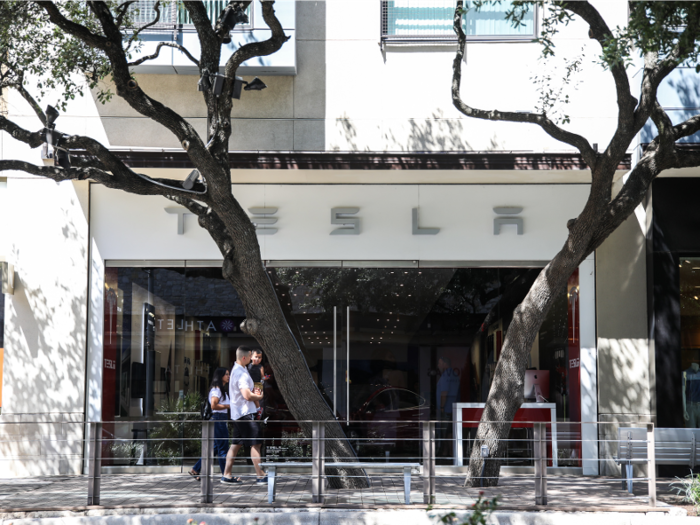
"Most of the technology community right now is in Northwest Austin and that's where the workforce lives — anywhere from parts of Williamson County, Round Rock, all the way to Cedar Park and Leander," Angelou said.
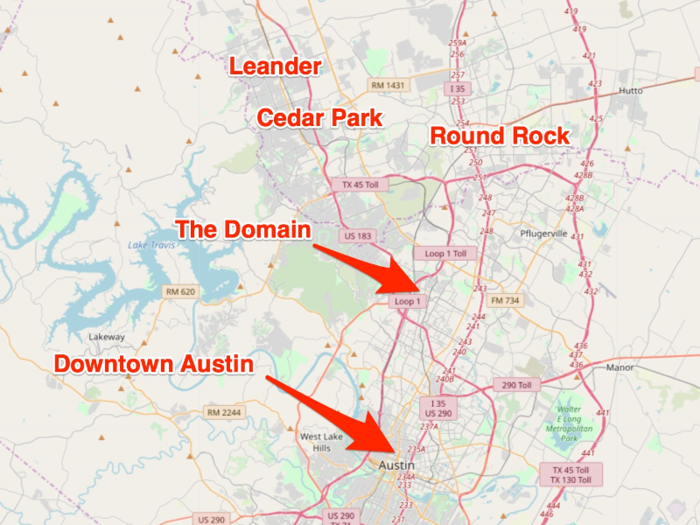
Professionals with deeper pockets specifically post up in a cluster of neighborhoods to the west and north of Downtown, like West Lake Hills.
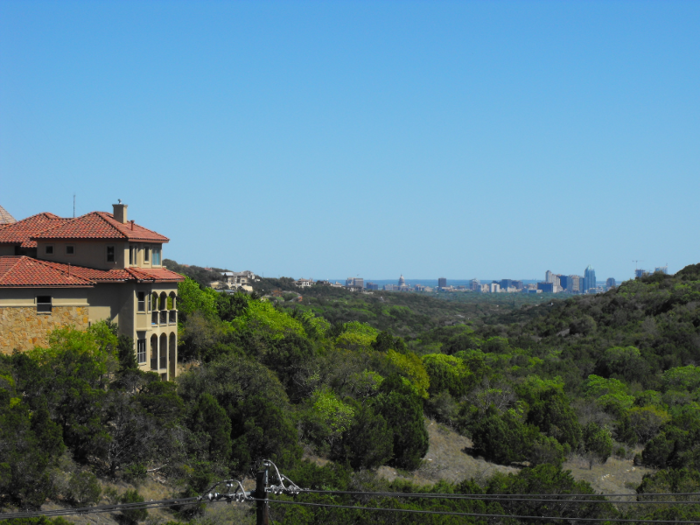
Source: SEO'Brien
That's not to say that tech development can only be found in Northwest Austin. It's everywhere, from East Austin to Downtown, though it wasn't always that way, O'Brien said.
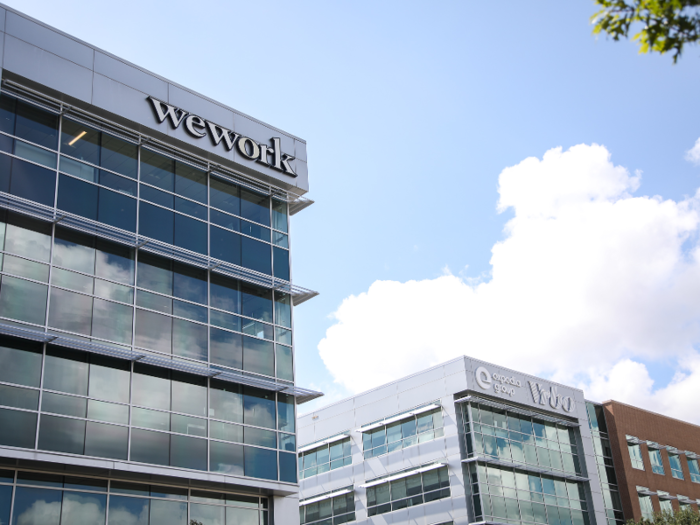
"Downtown was ‘Keep Austin Weird,’" O'Brien told Business Insider. "It was the music, and what we know of as Austin."
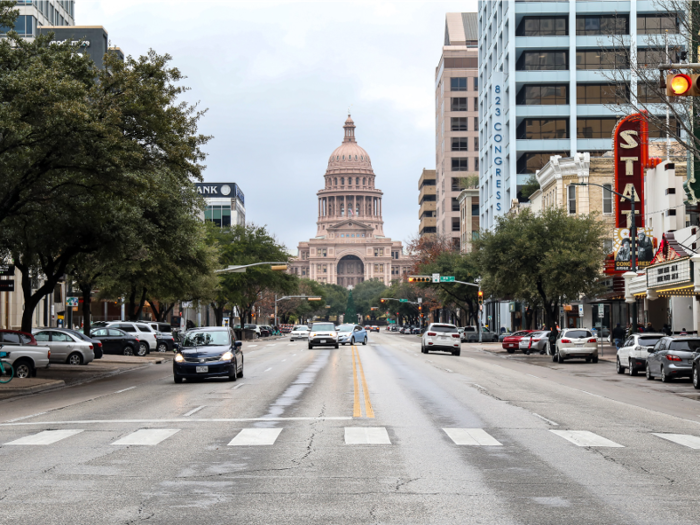
But in the 2000s, tech companies started looking downtown for office space. The Austin-based Silicon Labs was the first tech company to do so in 2005, Angelou said.
Source: Austin Business Journal
But traffic became a nightmare and office rent started to rise. So nowadays, Angelou said, only the largest companies can afford office space downtown, not small or mid-sized companies like it once was.
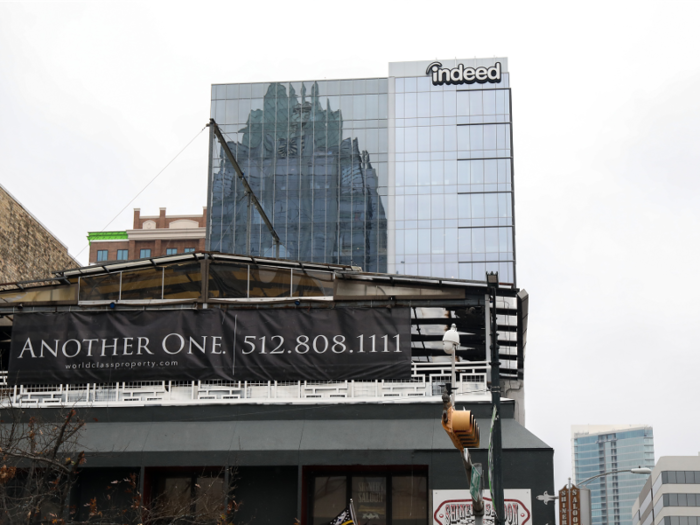
"The Google's of the world and the Facebook's of the world began to look at Downtown because you make a statement with Downtown office space," Angelou said.
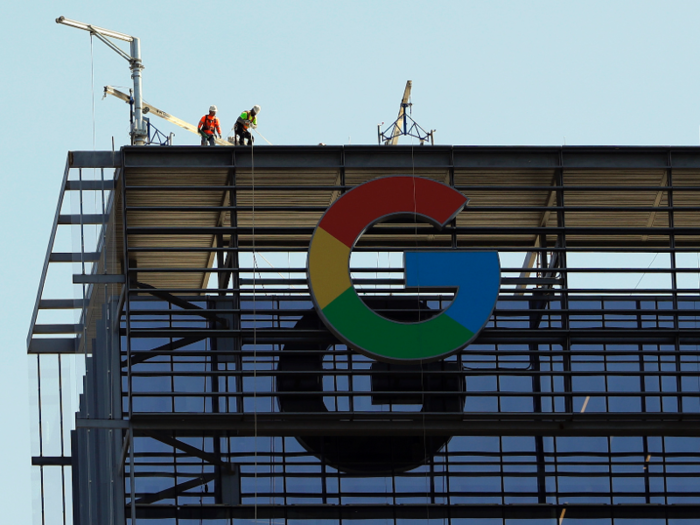
According to a report by Austin real-estate agency Aquila Commercial, the full-service rental rate for office space was $67.18 per square foot in mid-2019. At the Domain, it was $44.14.
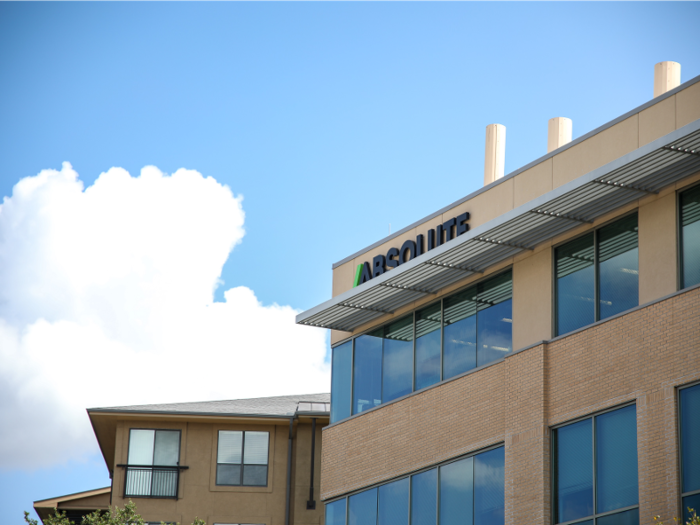
Source: Aquila Commercial
So having more than one city center has benefitted Austin's tech and business ecosystem, allowing companies to set up shop where they wish depending on costs, the kind of tech they're focusing on, and the workforce they're trying to attract, Angelou said.
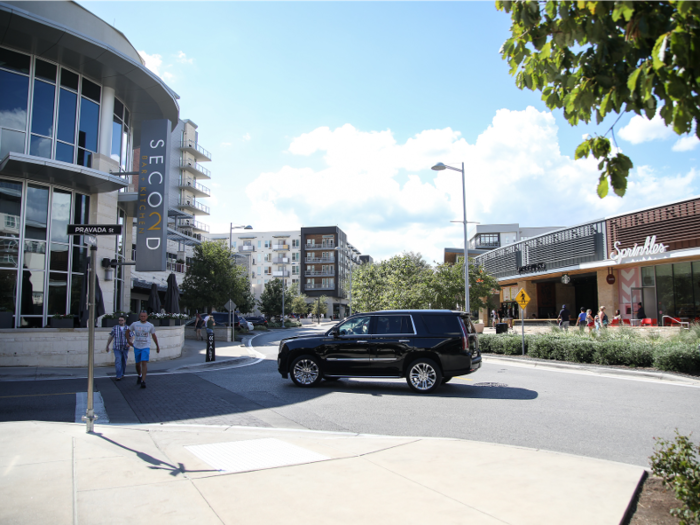
But as Austin's tech boom continues, and companies need more space, it's only a matter of time before more projects like the Domain start sprouting up.
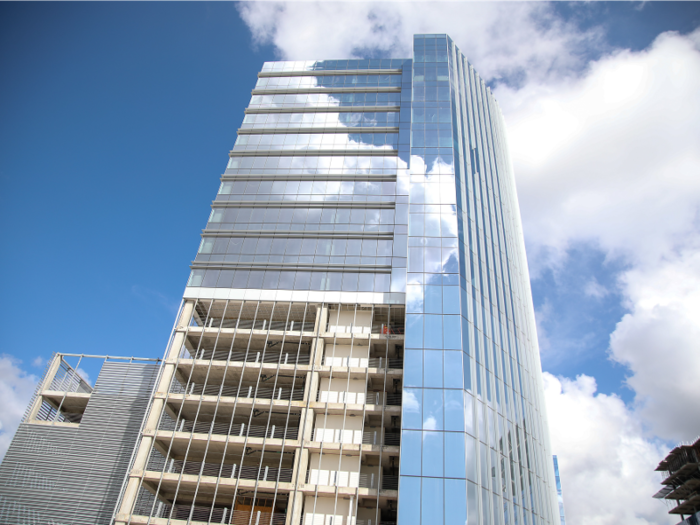
"They don't have unlimited land, so eventually they're going to run out of property, and then we'll get another Domain somewhere else perhaps," Angelou said.
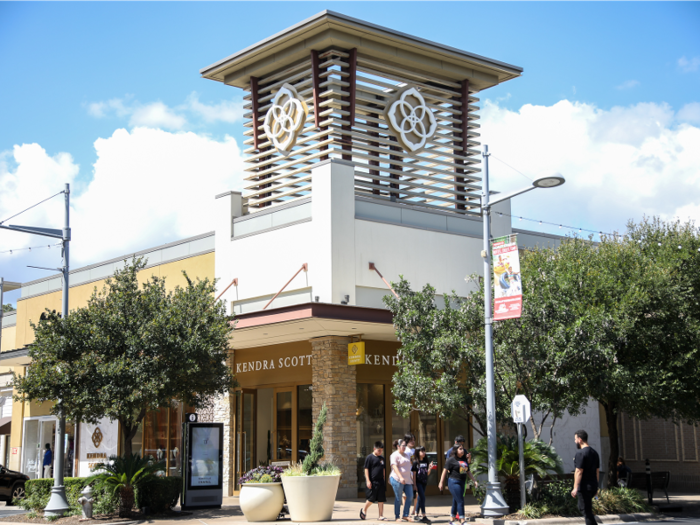
Popular Right Now
Popular Keywords
Advertisement